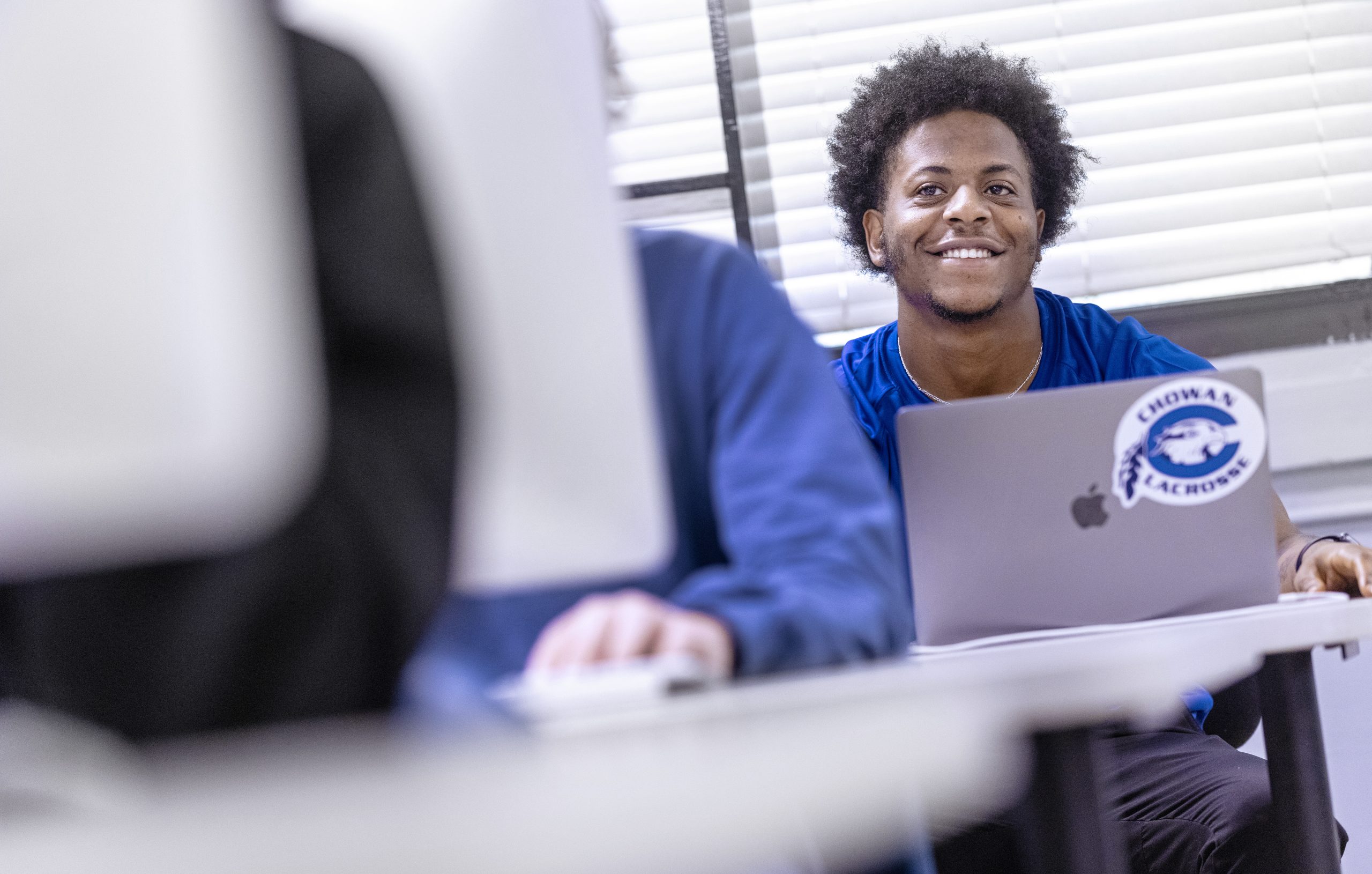|
Through an interdisciplinary approach, the Chowan University Life Skills Core strives to develop the whole, educated person, one who has acquired the knowledge and skills beyond those expected in the area of specialization; provide students a broad exposure to the arts and sciences that integrates multiple perspectives, helping students develop a questioning mind; and equip students with the essential skills necessary for academic excellence, personal growth, professional success, and meaningful and impactful lives as informed and engaged members of society.
The core is committed to:
Life Skills: Teaching essential life skills such as communicating effectively, self-care and wellness, coachability, spiritual growth, problem solving, financial literacy, collaboration, building confidence, technical competence, and developing professionalism.
Writing Proficiency: Enhancing students’ writing abilities, emphasizing clarity, coherence, and creativity, enabling them to express ideas effectively in both academic and professional settings.
Effective Communication: Developing students’ ability to communicate clearly and persuasively across various mediums and contexts, fostering strong interpersonal and public speaking skills.
Historical Awareness: Providing a comprehensive understanding of historical events, contexts, and perspectives, enabling students to appreciate the complexities of the past and its influence on the present and future.
Technological Literacy: Ensuring students are proficient in using current technologies, understanding their implications, and leveraging them responsibly in their personal and professional lives.
Religious and Cultural Understanding: Encouraging an appreciation of diverse religious and cultural traditions, fostering respect, empathy, and a deeper understanding of global perspectives and values.
Self-Care and Wellness: Promoting physical, mental, and emotional well-being through education on healthy lifestyles, self-care practices, and wellness strategies, ensuring students are prepared to lead balanced and healthy lives.
Mathematical Competence: Equipping students with mathematical skills and reasoning, promoting logical thinking, problem-solving abilities, and the application of quantitative analysis in various aspects of life.
Core Competencies and Goals
Competency I: Communication: reading, writing, verbal, non-verbal
Goal 1 - To demonstrate effective conveying and receiving of information.
Competency II: Critical Thinking: analysis, evaluation, application
Goal 2 - To analyze information and ideas carefully and logically from multiple perspectives and develop reasoned solutions to problems.
Competency III: Wholeness: intellectual, physical, spiritual, interpersonal
Goal 3 - To demonstrate the importance and value of personal well-being and responsibility for intellectual, physical, spiritual, and inter-personal growth.
Goal 4 - To demonstrate an understanding of ethical issues and personal values necessary for personal and corporate responsibility.
Competency IV: Knowledge and skills: arts, science, technology, mathematics
Goal 5 - To demonstrate an understanding of social science theories and concepts that analyze human behavior and events from historical, social, political, cultural, and economic perspectives.
Goal 6 - To demonstrate an understanding of the nature of literature, art, music, theater, religion, and philosophy.
Goal 7 - To demonstrate an understanding of the principles and methods in science, technology, and mathematics to solve problems.
The core competencies and goals are interactively connected across the Life Skills Core curriculum.
Requirements for a Bachelor’s Degree
Life Skills Core (40 credit hours)
The Capstone Experience
Each degree program requires a capstone experience. The experience provides students the opportunity to synthesize and apply disciplinary knowledge and skills, foster reflection on undergraduate learning and experience, demonstrate emerging professional competencies, and explore areas of career interest. Examples of capstone experiences include, but are not limited to, senior project or research paper, thesis, practicum, internship, field experience, portfolio, student teaching, clinical assignment, and other culminating experiences. The capstone experience can be implemented as a course or as an experience that is spread out in several courses in a degree program.
Requirements for an Associate’s Degree
Life Skills Core (24 credit hours)
|

